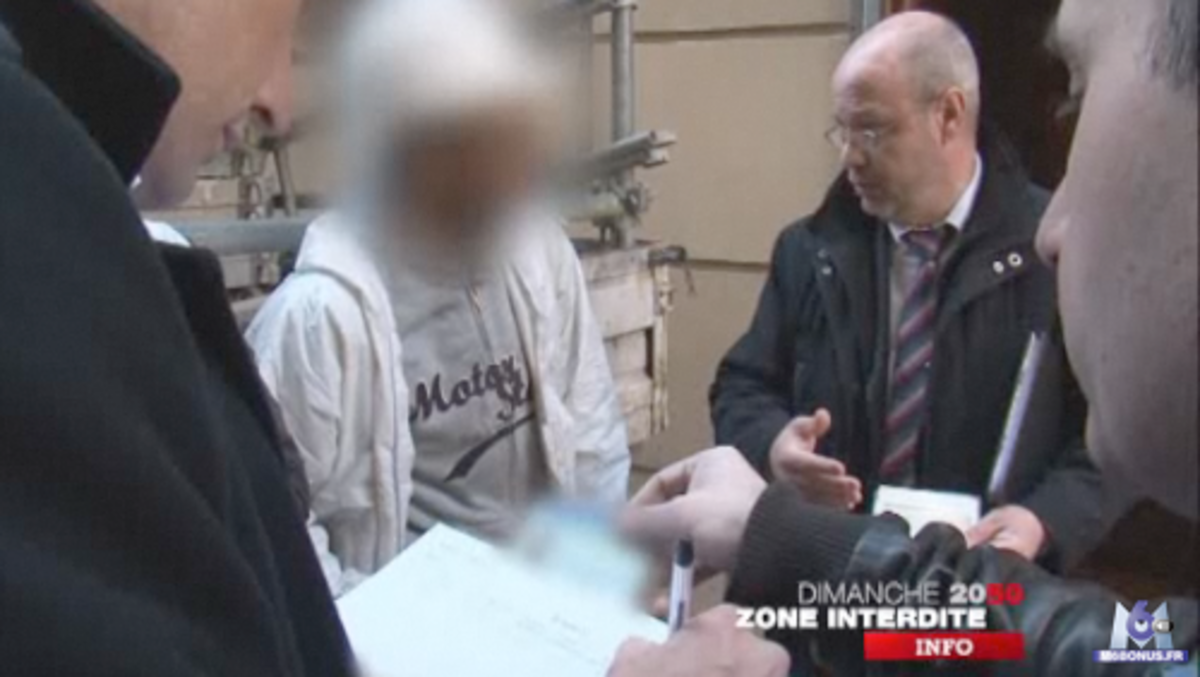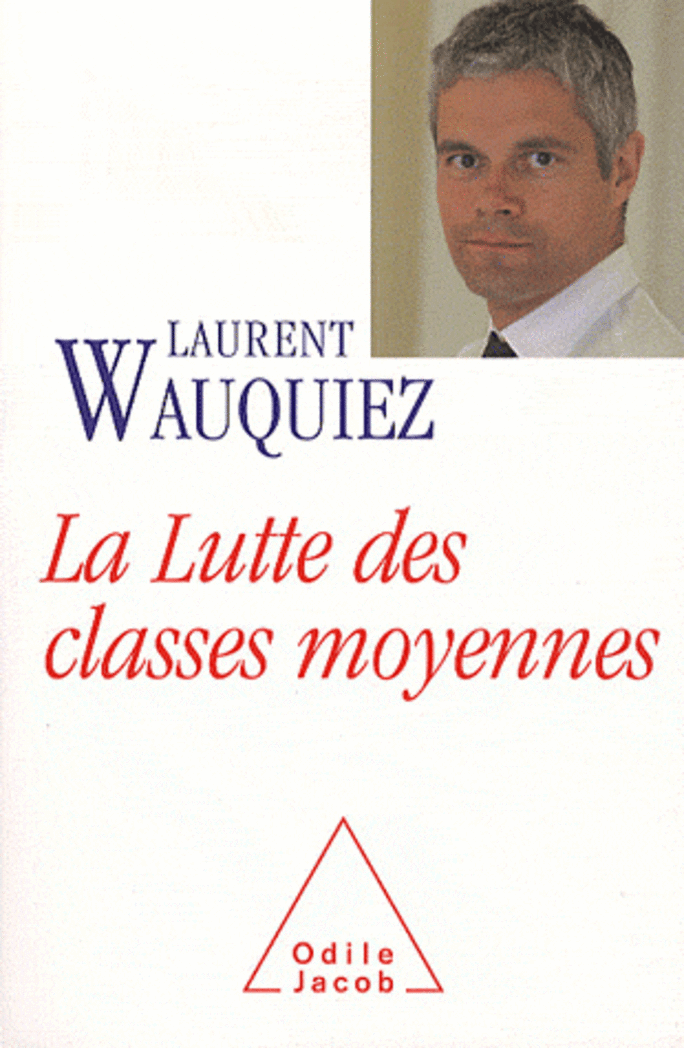President Nicolas Sarkozy has clearly decided to make the fight against social benefits fraud, described by one of his ministers as "a cancer of French society", one of the main themes of his 2012 re-election campaign. While that will not officially begin until early next year, this week saw a carefully coordinated blitz against the increasingly stigmatised welfare dependent, and which announces the colour of the presidential election debate ahead. Marine Turchi reports.
-------------------------
"To rob the social security [system] is to betray the confidence of all the French," declared French President Nicolas Sarkozy in a speech delivered to party supporters and local businessmen in Bordeaux this Tuesday. "Fraud is the worst and the most insidious betrayal of the spirit of 1945," he thundered, referring to the benefits system created during the reconstruction of France immediately after WWII.
"We must have no tolerance for cheats and fraudsters," said Sarkozy, accompanied by foreign affairs minister Alain Juppé (who is also mayor of Bordeaux), labour minister Xavier Bertrand, solidarity and social cohesion minister Roselyne Bachelotand her junior minister responsible for families, Claude Greff. "Cheating, and I mean stealing from the social security system, is stealing from each and every one of us, and each and every one of you."
In what was a carefully-planned operation, Sarkozy's ruling UMP party on Monday launched a flyer campaign, with three million copies printed, on the same theme, entitled "Join the party of rights and duties". Parallel to this, it has also organized a billboard campaign, featuring five separate slogans (40,000 copies each), which include banner messages of "Yes to solidarity, no to fraud", and "Yes for work, no to subsidized life".

In an interview published Tuesday, the same day as Sarkozy's trip to Bordeaux, in the free-paper Direct matin, whose owner is the president's billionaire friend Vincent Bolloré, labour minister Xavier Bertrand announced that the government will not hesitate to employ the "legislative arsenal" at its disposition in combating benefits fraud. He estimated the cost of fraud, in which he included what he claimed to be 10%-15% of "abusive" sick leave absences, amounted to an annual 4 billion euros, of which only 458 million euros were formerly discovered.
French TV channel M6 obligingly gave a lift to the launch of the campaign with a special edition of its weekly current affairs programme Zone interdite entitled ‘The France that frauds' and which drew an estimated 4.2 million viewers. The commentary in the trailor for the programme (see here) ran: "Moonlighting, VAT swindling, social security cheating... in France fraud is exploding".
This new tack for Sarkozy's presidential campaign, dressed up as if providing an answer to the public deficit, is aimed at the middle classes; while pulling the rug from under the far-right Front National party, which has also made the issue one of its main policy planks, it also implicitly positions the Socialist Party, which has denounced "a fight against the poor", as being soft on fraud.
Laurent Wauquiez, self-proclaimed spokesman for middle France, and which makes a central issue of the need to eradicate the numbers of French people who live

dependent upon state assistance.
The following Thursday, the UMP mayor of Paris' chic 7th arrondissement, one of the most expensive, property-wise, of any of the capital's neighbourhoods, Rachida Dati, is to chair a local debate that focuses on the increasing financial difficulties of middle-income earners, entitled ‘After the working class, is it now the turn of the middle classes to be forced out of Paris?'.
The build up to the current campaign began with Nicolas Sarkozy's special advisor Patrick Buisson, a former writer with far-right newspaper Minute, who argued for the withdrawal of payments to some one million of France's poorest households of the Revenue de Solidarité Active (RSA), which is a top-up payment to keep them above the poverty line. Buisson gave an interview to French weekly Paris-Match in March, shortly after Sarkozy's ruling UMP party suffered a severe defeat in nationwide local elections, in which he presented a "battle plan" for the 2012 presidential elections, principally aimed at countering the rise of the Front National. This included curbing immigration, defining French national identity and combating state assistance in the framework of a "major law for the rehabilitation of [the ethics of] work".

The following month, Laurent Wauquiez caused an outcry on the left, and even among members of his own UMP party, when he followed up with a call for tough action against what he termed as the "abuses" of those dependent on state assistance, describing these as a "cancer of French society". He set out a battery of proposals, which included making payments of the RSA top-up conditional to working benevolently for 20 hours per month, and limiting social benefits payments to 75% of the minimum working wage, (the Smic), while also imposing a required minimum period of work before non-EU nationals could receive French social security benefits.
In early June, Le Figaro Magazine, the weekly colour supplement published by French daily Le Figaro, ran a cover story (see above) headlined ‘An investigation into benefit-dependent France'. Later that month, the ruling UMP party faction la Droite populaire, a group of some 40 MPs on the right of the party, organized a conference debate on the same theme, entitled; "Social fraud, a hold-up against national solidarity."
One of the faction's members, Dominique Tian, an MP for the southern Bouches-du-Rhône region, claimed in a report he authored that benefits fraud in France amounted to a loss of 20 billion euros for the State, which he said was "44 times more than the fraud currently identified".
While the figure was widely quoted in the French press, the claim is grossly erroneous, as Mediapart has previously reported (see here). The French national audit office, la Cour des comptes, estimated in 2010 that the annual cost of social benefits fraud totaled 3 billion euros, representing less than 1% of the 400 billion euros of social benefits paid out each year.
The French national family allowance agency, La Caisse nationale des allocations familiales (Cnaf), estimated that of the 60 billion euros it allocated in 2010, fraudulent claims amounted to 0.15%, equal to 90.1 million euros.
In September, the ruling UMP party's deputy leader, Marc-Philippe Daubresse, who is also junior minister responsible for higher education, published a report that adopted the controversial measures called for by Laurent Wauquiez in April, even adding a proposition that subsidized public housing rentals be in part reserved only for those in employment.
The government added new, tougher action against benefits fraudsters in its social security financing bill that was submitted before parliament on October 25th. In a news report, French TV channel TF1 quoted what it described as a senior UMP source, speaking on condition of anonymity, as saying "fraudsters" were a subject of increasing importance, "that's normal during a crisis, and we're going to throw everything at that".
While it is true that Nicolas Sarkozy had already, in his 2007 election campaign, denounced abuse of dependency of welfare benefits (click on video, left), it was used to highlight his oft-repeated slogan of "work more to earn more", which has now come back to haunt the self-proclaimed "candidate of spending power". In the run up to the 2012 elections, he has re-organized the chairs, dropping the eulogy to working harder and placing the issue of welfare abuse at the fore.
-------------------------
English version: Graham Tearse


